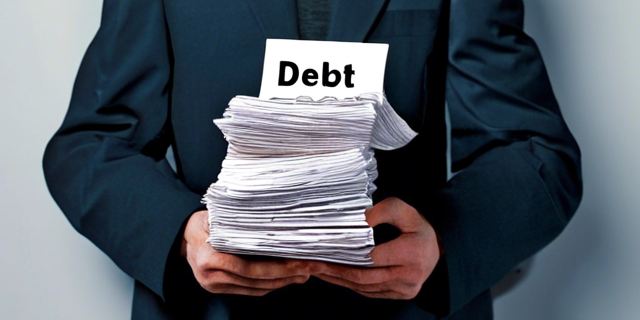Tips for Negotiating Debt Settlement with Creditors 2024

When you’re struggling with debt, negotiating a settlement with your creditors can be a viable option to get your finances back on track. However, navigating the debt settlement process can be challenging, and it’s essential to approach it with a well-informed strategy. In this article, we’ll explore practical tips to help you negotiate debt settlement with creditors effectively.
Understanding Tips for Negotiating Debt Settlement with Creditors 2024
Before we dive into the negotiation tips, let’s first understand what debt settlement entails. Debt settlement is a process where you negotiate with your creditors to pay a lump sum amount that is less than the total amount you owe. In exchange, the creditor agrees to consider the remaining balance as settled and forgiven.
It’s important to note that debt settlement should be considered a last resort option, as it can have a significant impact on your credit score and may result in tax implications for the forgiven debt amount.
1. Assess Your Financial Situation

The first step in negotiating debt settlement is to assess your financial situation thoroughly. Gather all the necessary information, including the total amount of debt you owe, the interest rates, and the creditors involved. This will help you determine your negotiation strategy and set realistic expectations.
2. Prioritize Your Debts
Not all debts are created equal. Prioritize your debts based on their urgency and potential consequences. For example, secured debts like mortgages or car loans should take precedence over unsecured debts like credit cards or personal loans. This will help you allocate your resources effectively and focus on the debts that pose the greatest risk.
3. Understand Your Rights
Familiarize yourself with the Fair Debt Collection Practices Act (FDCPA) and your rights as a consumer. This federal law prohibits debt collectors from engaging in abusive, deceptive, or unfair practices. Knowing your rights will empower you during the negotiation process and prevent you from being taken advantage of.
4. Gather Supporting Documentation
Before reaching out to your creditors, gather all relevant documentation that supports your financial hardship. This may include proof of income, medical bills, job loss or reduction in income, or any other extenuating circumstances that have contributed to your inability to pay your debts. Having this documentation ready will strengthen your case and increase your chances of a successful negotiation.
5. Communicate with Creditors

Once you have all the necessary information and documentation, it’s time to reach out to your creditors. Explain your situation clearly and express your willingness to negotiate a settlement. Be prepared to provide detailed information about your financial circumstances and the reasons for your inability to pay the full amount.
6. Make a Reasonable Offer
When negotiating with creditors, it’s essential to make a reasonable offer. Research industry standards and typical settlement percentages to ensure your offer is within an acceptable range. A common practice is to offer between 20% and 50% of the outstanding balance as a lump sum payment.
7. Get the Agreement in Writing
If a creditor agrees to a settlement, ensure that the terms are clearly outlined in writing. This document should include the agreed-upon settlement amount, the payment timeline, and a statement that the remaining balance will be forgiven upon successful payment. Having a written agreement will protect you and serve as evidence should any disputes arise in the future.
8. Stick to the Agreement
Once you’ve reached an agreement with a creditor, it’s crucial to stick to the terms. Make timely payments as agreed upon, and keep open communication with the creditor throughout the process. Failing to adhere to the agreement may result in the creditor reversing the settlement and pursuing the full outstanding balance.
9. Negotiate with Multiple Creditors
If you have multiple debts, it’s essential to negotiate with each creditor individually. Each creditor may have different guidelines and policies regarding debt settlement, and it’s crucial to tailor your approach accordingly.
10. Consider Professional Assistance
Debt settlement can be a complex process, and in some cases, it may be beneficial to seek professional assistance. Credit counseling agencies or experienced attorneys specializing in debt settlement can provide valuable guidance and represent you in negotiations with creditors.
11. Be Persistent and Patient
Negotiating debt settlement can be a lengthy and challenging process. It’s essential to be persistent and patient throughout the negotiations. Creditors may initially reject your offer or propose counteroffers. Be prepared to counter and continue negotiating until you reach a mutually acceptable agreement.
12. Protect Your Credit Score
While debt settlement can provide relief from overwhelming debt, it’s important to be aware of the potential impact on your credit score. Settled debts are typically reported to credit bureaus as “settled for less than the full amount,” which can negatively affect your credit score. However, the impact may be less severe than the consequences of continued missed payments or defaulting on the debt.
13. Explore Alternatives
If debt settlement is not a viable option for your situation, explore other alternatives such as debt consolidation, debt management plans, or bankruptcy. Each option has its own pros and cons, and it’s essential to weigh them carefully based on your individual circumstances.
14. Rebuild Your Financial Future
Once you’ve successfully negotiated debt settlement, it’s time to rebuild your financial future. Develop a budget, reduce expenses, and create an emergency fund to prevent future debt accumulation. Consider working with a financial advisor or credit counselor to establish healthy financial habits and repair your credit score.
15. Stay Vigilant
Even after negotiating a debt settlement, remain vigilant and monitor your credit reports regularly. Ensure that the settled debts are accurately reported and that no further collection actions are taken by the creditors. Promptly address any discrepancies or issues that may arise.
Conclusion
Negotiating debt settlement with creditors can be a viable solution for those struggling with overwhelming debt. By following these tips, you can approach the process with confidence and increase your chances of reaching a favorable agreement. Remember, open communication, persistence, and a willingness to compromise are key to successful debt settlement negotiations. With diligence and perseverance, you can regain control of your financial future.
FAQs: Tips for Negotiating Debt Settlement with Creditors 2024
1. Is debt settlement a good option for everyone? No, debt settlement is not suitable for everyone. It should be considered a last resort option, as it can have a significant impact on your credit score and may result in tax implications for the forgiven debt amount.
2. Can I negotiate debt settlement on my own, or do I need professional help? You can negotiate debt settlement on your own, but professional assistance from credit counseling agencies or experienced attorneys may be beneficial, especially if you have multiple debts or complex financial situations.
3. How long does the debt settlement process typically take? The debt settlement process can take several months to over a year, depending on the number of creditors involved, the negotiation process, and the agreed-upon repayment terms.
4. Will debt settlement affect my credit score? Yes, debt settlement can have a negative impact on your credit score, as settled debts are typically reported to credit bureaus as “settled for less than the full amount.” However, the impact may be less severe than the consequences of continued missed payments or defaulting on the debt.
5. Can creditors still pursue legal action after a debt settlement agreement? No, once a debt settlement agreement is reached and the terms are fulfilled, the creditor cannot pursue further legal action or attempt to collect the remaining balance that was forgiven as part of the settlement







